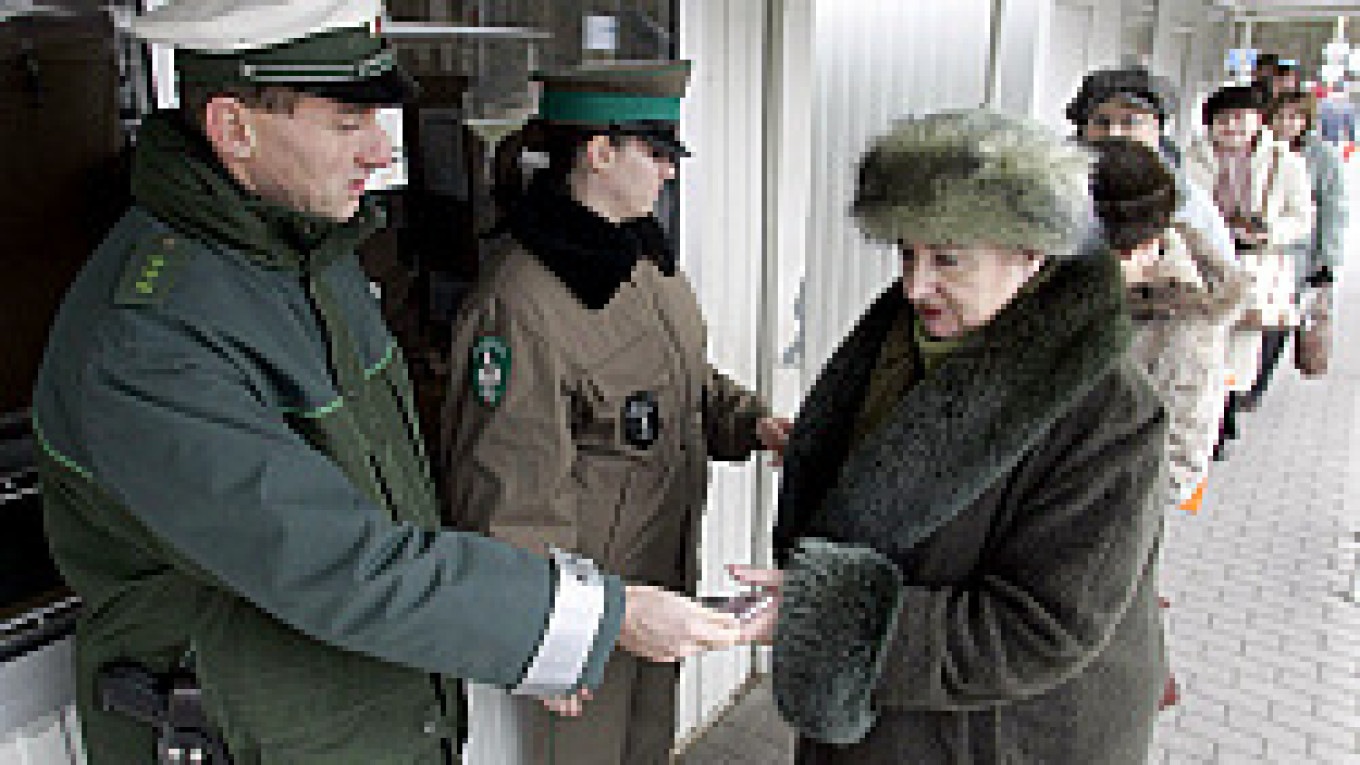Baryliszyn is one of several dozen Polish entrepreneurs who have set up in L??cknitz -- where gray, communist-era high-rise apartments mix with bright homes decked with solar panels -- providing a boost to the 3,000-strong town near the border in one of Germany's poorest regions.
"It's quite astonishing. A few years ago, people said once Poland joined the European Union, Germans would rush to Poland to buy everything up. But it turned out quite differently," Baryliszyn said. "Cheap property is a key factor."
At first glance, L??cknitz looks like many other East German towns: almost one in four people is unemployed, discount shops line its streets and the far-right National Democratic Party scored 18 percent in a recent election.
But unlike many bleak towns in the former communist East, where birth rates have slumped and apartments stand empty because jobless workers have moved to wealthier western states, dozens of brightly painted family homes have mushroomed in L??cknitz and it now needs a bigger kindergarten.
Like Baryliszyn, many investors and Polish buyers come from the booming port city of Szczecin, Poland's seventh largest city, which is less than a 30-minute drive away.
Since May 2004, when Poland became the biggest ex-communist European Union member, the jobless rate in Szczecin has dropped from above 16 percent to 6.6 percent in January 2008 -- less than one-third of the current rate in L??cknitz.
"Szczecin is our trump card," said Lothar Meistring, the mayor of L??cknitz, where real estate agents say property prices are up to 20 percent cheaper than in the Polish city.
"[To many Poles], L??cknitz is the gateway to the western world," Meistring said, sitting in his office next to a Polish hairdresser and close to a real estate agency, which has offers advertised in both Polish and German.
Some 200 Poles have moved to L??cknitz over the past few years, and 40 firms have been set up, the mayor said.
"Our population is growing. ... We have to build a new kindergarten," he said.
Szczecin Mayor Piotr Krzystek said it was a trend among young people to try their luck in Germany.
"Those [regions close to the border] have recently been deserted [by many Germans], so some Poles are attracted by German incentives to launch businesses there," he said.
Polish insurance broker Mariusz Kimla said the short distance to his Szczecin office had convinced him to build a two-story home for him and his wife in the German town.
"I wouldn't get much for my money in Poland," Kimla said.
The biggest former communist economy in the EU has enjoyed a four-year housing boom during which many Poles bought their first homes and took out their first mortgages thanks to cheaper credit. House prices jumped by 50 percent in 2006.
"I advise other Poles to do the same. We can contribute to making this place more lively," the 30-year-old Kimla said of L??cknitz, which is some 130 kilometers northeast of Berlin and is surrounded by forests, lakes and wind turbines.
But both Poles and Germans say Poles have not always received the warmest of welcomes.
A few weeks ago, several Polish people in L??cknitz had their car windows smashed, and some NPD supporters parade around town in T-Shirts with the slogan "L??cknitz must remain German" or distributing flyers reading, "Close the border."
Mayor Meistring says a handful of "problem citizens" were damaging the reputation of the majority in L??cknitz who welcomed their Polish neighbors.
Polish investors received the same help or subsidies as German firms, he said, adding even the most critical far-right supporters were benefiting from the Polish newcomers.
"One of the leading NPD officials, a tiler, is renovating a house owned by a Pole at the moment. How ironic is that?"
A Message from The Moscow Times:
Dear readers,
We are facing unprecedented challenges. Russia's Prosecutor General's Office has designated The Moscow Times as an "undesirable" organization, criminalizing our work and putting our staff at risk of prosecution. This follows our earlier unjust labeling as a "foreign agent."
These actions are direct attempts to silence independent journalism in Russia. The authorities claim our work "discredits the decisions of the Russian leadership." We see things differently: we strive to provide accurate, unbiased reporting on Russia.
We, the journalists of The Moscow Times, refuse to be silenced. But to continue our work, we need your help.
Your support, no matter how small, makes a world of difference. If you can, please support us monthly starting from just $2. It's quick to set up, and every contribution makes a significant impact.
By supporting The Moscow Times, you're defending open, independent journalism in the face of repression. Thank you for standing with us.
Remind me later.


